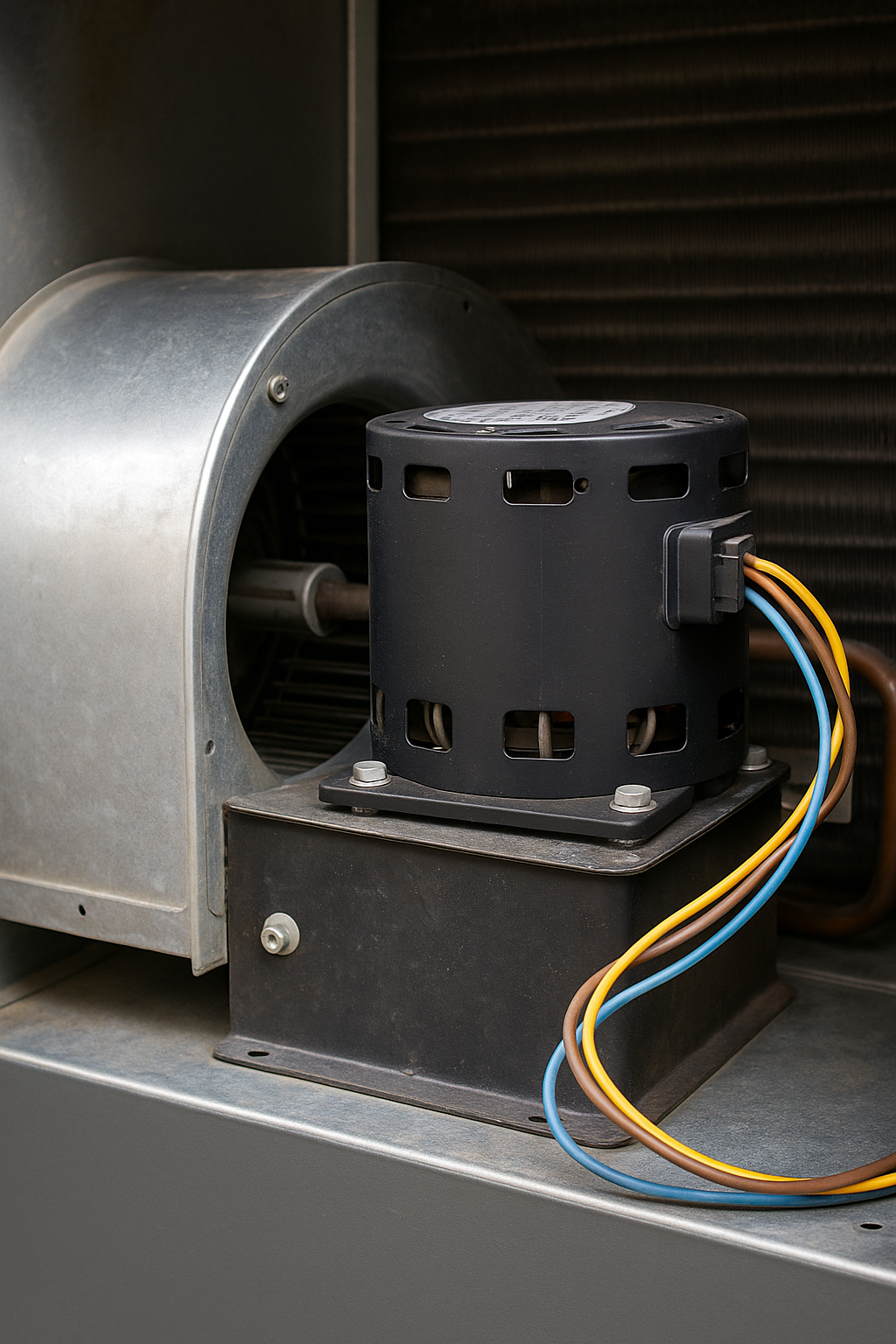(813) 440-8108

How to Start an HVAC Business: A Comprehensive Guide
Embarking on a journey to establish your own HVAC (Heating, Ventilation, and Air Conditioning) business is both challenging and rewarding. With the increasing demand for climate control solutions, there's a significant opportunity for skilled professionals to thrive in this industry. However, success requires more than technical expertise; it demands strategic planning, adherence to legal requirements, and effective marketing.
In this article, we'll delve into the critical steps necessary to launch a successful HVAC business. We'll cover obtaining essential certifications, developing a robust business plan, navigating legal and financial considerations, and implementing effective marketing strategies.
1. Obtain Essential HVAC Certifications and Licenses
Before offering HVAC services, it's imperative to secure the necessary certifications and licenses to ensure compliance with industry standards and legal regulations.
Key Certifications
-
EPA Section 608 Certification: Mandated by the U.S. Environmental Protection Agency (EPA) for technicians handling refrigerants. This certification is divided into four types:
-
Type I: For servicing small appliances.
-
Type II: For servicing or disposing of high-pressure appliances.
-
Type III: For servicing or disposing of low-pressure appliances.
-
Universal: Covers all types of equipment.
-
NATE (North American Technician Excellence) Certification: A nationally recognized certification that validates a technician's knowledge and skills, enhancing credibility with clients.
State and Local Licensing
Licensing requirements vary by state and locality. It's essential to:
-
Research State Regulations: Contact your state's licensing board to understand specific requirements, which may include passing exams, obtaining insurance, and demonstrating work experience.
-
Secure Local Permits: Some municipalities require additional permits or business licenses to operate legally within their jurisdictions.
Ensuring all certifications and licenses are in place not only guarantees legal compliance but also builds trust with potential clients.
👉🏻 How to Replace HVAC Blower Motor
2. Develop a Comprehensive Business Plan
A well-structured business plan serves as a roadmap for your HVAC business, outlining your objectives and strategies to achieve them.
Key Components of an HVAC Business Plan
-
Executive Summary: A concise overview of your business, including mission statement, services offered, and business goals.
-
Market Analysis: Research your target market, including customer demographics, market size, and competitive landscape.
-
Services Offered: Detail the HVAC services you plan to provide, such as installation, maintenance, and repair for residential or commercial clients.
-
Marketing and Sales Strategies: Outline how you intend to attract and retain customers, including advertising channels, promotional tactics, and sales processes.
-
Financial Projections: Provide detailed financial forecasts, including startup costs, revenue projections, and break-even analysis.
A comprehensive business plan not only guides your operations but is also crucial when seeking financing from investors or lenders.
3. Secure Financing and Manage Finances
Proper financial management is the backbone of any successful business. Establishing sound financial practices from the outset ensures sustainability and growth.
Startup Costs
Identify and estimate initial expenses, which may include:
-
Equipment and Tools: Invest in quality HVAC tools and equipment necessary for service delivery.
-
Vehicles: Acquire reliable transportation for service calls, considering branding opportunities with vehicle wraps.
-
Office Setup: Set up an office space equipped with necessary administrative tools and software.
Funding Options
Explore various financing avenues:
-
Personal Savings: Utilize personal funds to maintain full control over your business.
-
Business Loans: Apply for loans from financial institutions, ensuring you have a solid business plan to present.
-
Investors: Seek investment from partners or venture capitalists in exchange for equity or profit sharing.
Financial Management Practices
Implement robust financial practices:
-
Accounting Software: Utilize accounting software to track income, expenses, and manage invoices efficiently.
-
Professional Consultation: Consider hiring an accountant or financial advisor to ensure compliance with tax laws and to provide strategic financial planning.
Sound financial management is critical to the longevity and profitability of your HVAC business.
👉🏻 How to Test HVAC Blower Motor with a Multimeter: A Comprehensive Guide
4. Invest in the Right HVAC Equipment and Supplies
Having the proper tools and a reliable inventory of replacement parts is essential for efficiency and professionalism in your HVAC business. Investing wisely in equipment can reduce downtime, increase job efficiency, and improve customer satisfaction.
Essential HVAC Tools and Equipment
-
Refrigerant Gauges – For diagnosing and refilling HVAC systems.
-
Multimeter and Clamp Meter – To test electrical components safely.
-
Leak Detectors – Essential for identifying refrigerant leaks.
-
Vacuum Pumps – Required for removing moisture and air from refrigerant lines.
-
Cordless Power Tools – For fast and precise installations and repairs.
Stocking High-Quality HVAC Parts
HVAC repairs often require replacement components. Keeping an inventory of commonly used parts ensures faster service and fewer return visits.
-
Blower Motors (Remanufactured vs. New) – Remanufactured blower motors provide an affordable, eco-friendly alternative that meets OEM standards at a fraction of the cost.
-
Compressors & Capacitors – Essential for AC and heating unit performance.
-
Air Filters & Thermostats – Regular replacements improve system efficiency.
-
Ducting Materials & Insulation – Helps with airflow management and energy savings.
By integrating remanufactured blower motors, you can lower costs while maintaining high service standards. Explore our Remanufactured Blower Motors Catalog for high-performance and cost-effective solutions.
5. Master Local SEO to Attract More Customers
Getting steady customers is one of the biggest challenges for any HVAC business. While word-of-mouth referrals are valuable, most customers search online when they need service. Optimizing your business for Local SEO and Google’s Local Map Pack can significantly increase your visibility.
How to Dominate Google’s Local Map Pack
The Google Local Pack shows the top three HVAC businesses in your area when customers search for services like “HVAC repair near me.” Here’s how to rank higher:
-
Set Up & Optimize Google My Business (GMB) – Ensure your profile is complete with your business name, address, phone number, hours, and services.
-
Encourage Customer Reviews – The more 5-star reviews you get, the better your ranking. Ask satisfied customers to leave reviews on Google.
-
Use Local Keywords – Add phrases like “AC repair in [Your City]” to your website and GMB description.
-
Post Regular Updates – Share photos of completed jobs, promotions, and company news on GMB to stay active.
SEO Strategies to Drive Long-Term Growth
Beyond the Local Map Pack, an optimized website will help attract long-term customers. Here’s what to focus on:
-
Create Location-Specific Service Pages – If you serve multiple cities, build separate pages for each (e.g., “HVAC Services in Miami” vs. “HVAC Repair in Fort Lauderdale”).
-
Write Informative Blog Content – Educate customers on common HVAC issues, seasonal maintenance tips, and energy efficiency.
-
Use Schema Markup – Implement structured data to help search engines better understand your business and improve rankings.
-
Get Listed in Local Directories – Register on platforms like Yelp, Angi, and HomeAdvisor to increase credibility.
By leveraging Local SEO and content marketing, you can generate leads consistently without relying solely on paid ads.
6. Provide Exceptional Customer Service & Build Trust
Customer satisfaction is the backbone of a successful HVAC business. Prioritizing reliability, transparency, and quality service will keep customers returning and referring your business.
Keys to Outstanding HVAC Customer Service
-
Offer Upfront Pricing & No Hidden Fees – Customers appreciate transparency.
-
Respond Quickly to Service Calls – HVAC issues are urgent, so fast response times set you apart.
-
Follow Up After Service – A simple check-in call or email improves customer loyalty.
-
Offer Maintenance Plans – Annual service agreements keep clients engaged and generate recurring revenue.
-
Encourage & Manage Online Reviews – Address negative feedback professionally and use positive reviews as testimonials.
A strong reputation builds trust and encourages repeat business, reducing your reliance on expensive lead generation services.
👉🏻 Troubleshooting an HVAC Fan Not Working: Common Causes and Solutions
Final Thoughts: Build a Profitable HVAC Business the Right Way
Starting an HVAC business requires dedication, strategy, and smart investments. By securing the right certifications, implementing effective marketing, and using cost-saving solutions like remanufactured blower motors, you can set your business up for long-term success.
If you're looking for high-quality, cost-effective HVAC components, check out our Remanufactured Blower Motors Catalog today and equip your business with top-performing parts that maximize efficiency and profitability.
